(The) Great Passage (TV)
↓
Once again, anime surprises me by taking seemingly boring subject matter and turning [it] into something wonderful. Let’s discuss The Great Passage.
―I Watched an Anime
Remember when we [didn’t] have any electronic gadgets like mobile phones, computers etc. We used to ask someone or just go through our dictionary whenever we wanted to find a meaning of that word. I still remember how I used to turn the pages of my dictionary when I was a kid. It was really fun to know the meanings of the words which I doesn’t know. Have you ever wondered how much time does it take to create a dictionary?
The Great Passage anime shows us all about that.
―Anjani
The dictionary: a tool that many of us take for granted. It’s easy to think of it as something we can look up on our phones, but we forget about the people who spend years of their lives making it. Today’s video [2021, Jan. Sixth] is about those workers and how they juggle their work and their personal lives:Fune wo Amu, a.k.a. The Great Passage.
It came out back in 2016, but I haven’t heard of a lot of people who talked about it then or even now. Whether it’s the fact that it’s an Amazon Prime show so it got lost in the sea of other crap, or some viewers were put off by the subject and how it approached the story, The Great Passage got quickly overlooked. It’s a real shame, because while it may not be a perfect series, I greatly enjoyed it, especially on my recent re-watch.
―Red Panda Reels
"Hello, Yamamoto-san? I have an idea for next year’s NoitaminA block.”
“Oh? Let’s hear it.”
“Well – it’s based on a book. And it’s already been an award-winning movie.”
“Wow – sounds great. What’s it about?”
“It’s a thriller about compiling a dictionary. It’s- Hello? Are you still there?”
[...]
Clearly, this is not the show for everybody – it’s reflective and low-key, as niche an anime as NoitaminA has done in a long time. But for someone who loves language and all its subtleties, The Great Passage is a real treat – especially knowing that one cour should be enough to give the novel a complete adaptation.
[...]
The Great Passage (yes, I like the English title so much I’m using it in the post headings) has an awful lot going for it to appeal to fans of esoterica like me.
―Lost in Anime (LiA)
Fune o Amu, Weaving a Ship
Here is a review of the novel.
Here is another review.
And another.
Here is the trailer for the live-action film.

Characters (left to right)
- Tomosuke Matsumoto
- Kōhei Araki
- Kaguya Hayashi
- Mitsuya Majime
- Masashi Nishioka
- Kaoru Sasaki
- Midori Kishibe
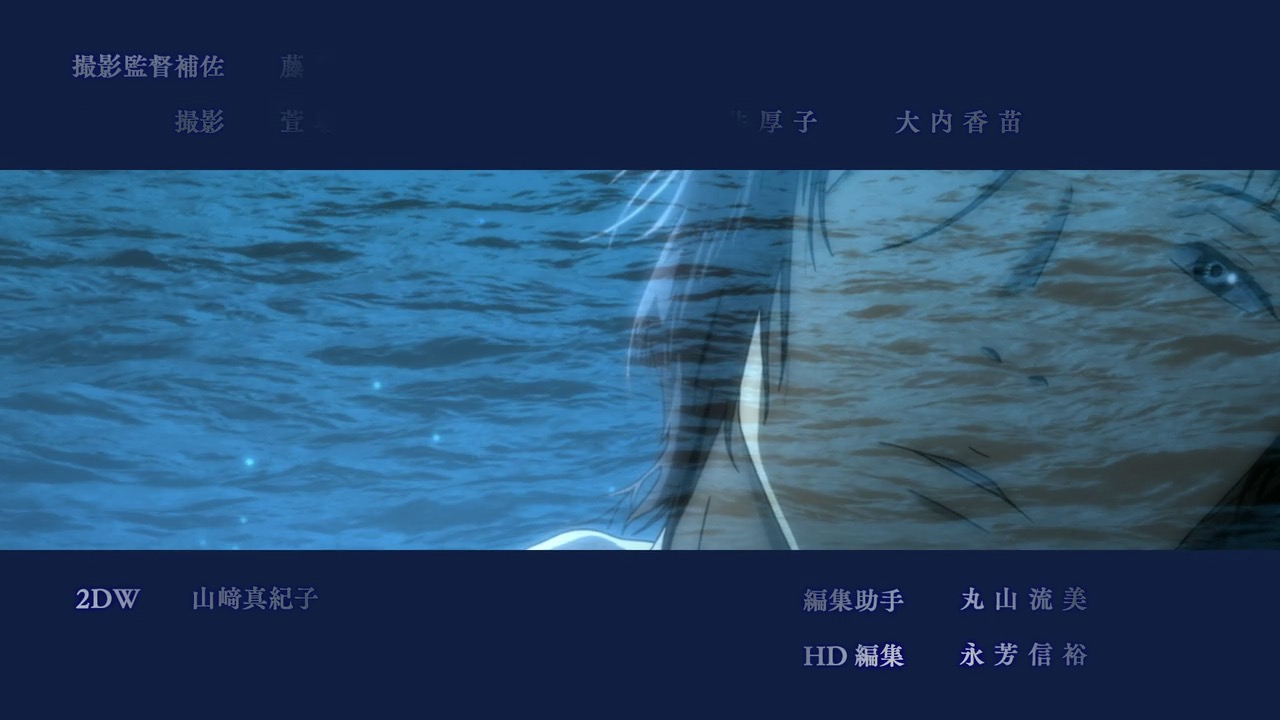
 This telephone really takes me back.....
This telephone really takes me back.....

-

2019, September 26th | I Watched an Anime (personal website)
- Anatomy of the Anime Office Worker | The Great Passage (Fune Wo Amu) Anime Review| Red Panda Reels (YouTube)
- 2017, April 13th | Allison M. Ziebruh (personal website)
- Fune no Amu (The Great Passage) l Anime Short Review | Ikerot (YouTube)
- Assembled as carefully as words in a poem | Ink (Otaku USA Magazine)
- Fune wo Amu (The Great Passage) - Sent's Anime Review | Sent ~ Anime Stuff (YouTube)
- The Great Passage : Such an underrated anime. | thelostvoice027 (My Utopia blog)
- Anime Review | The Great Passage | JcGreen (YouTube)
- it's a l0ve letter but she d0esn't understand the letter | AM Anime Clips (YouTube)
- The Great Passage (Fune wo Amu): Connection and Language | OLV (YouTube)
- Series discussion that occurred as it was being released on a weekly basis.
- Gabriella Elkins
LiA (archived reviews of The Great Passage)
N.B.: Images in the LiA section have their own hyperlinks.
-
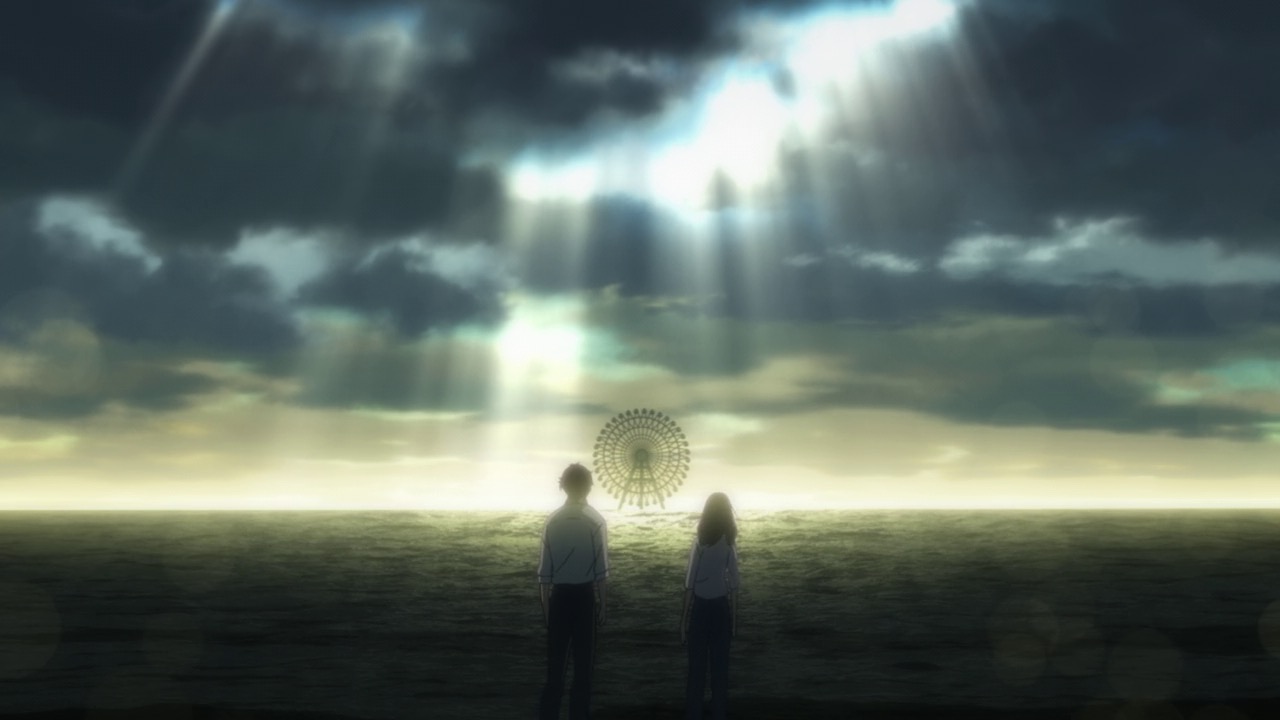
First Impressions
"I know one thing: if Manglobe still existed, they’d never let a potential commercial tank this big slip through their fingers.
[...]
"Fune wo Amu was one of the two or three shows I was most interested in, given the subject matter and pedigree of the source material. And I’m happy to say it didn’t disappoint, even as I wonder who the target audience is going to be."
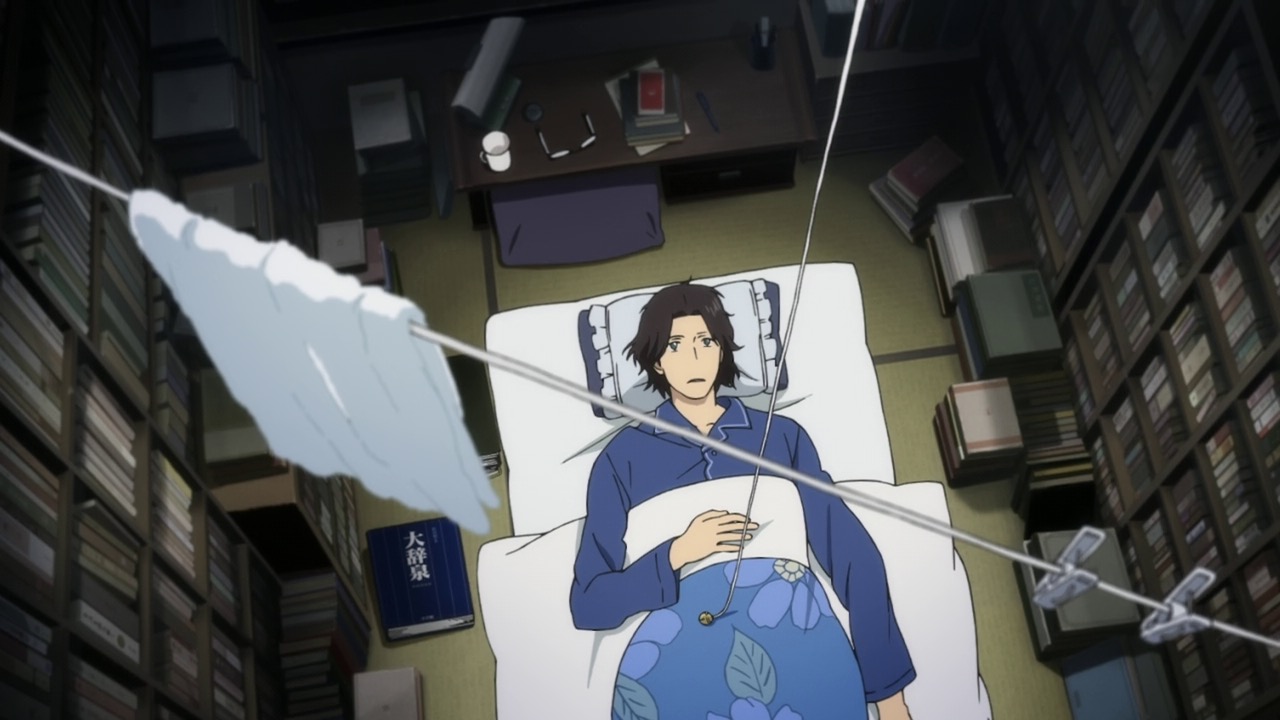
All this and Sakamoto Maaya too?
"I love Fune wo Amu, but I almost feel like it should be in a display case in a museum somewhere with people wandering by occasionally to read the plaque and stare at it rather than be on TV."

There’s more to life than dictionaries, a man has certain desires, and [Mitsuya] Majime is certainly no exception.
"It may well be that The Great Passage also refers to the journey of a child to adulthood for [Mitsuya] Majime – he’s certainly still a child in terms of social skills (he barely gets a word out in Kaguya’s presence)."
 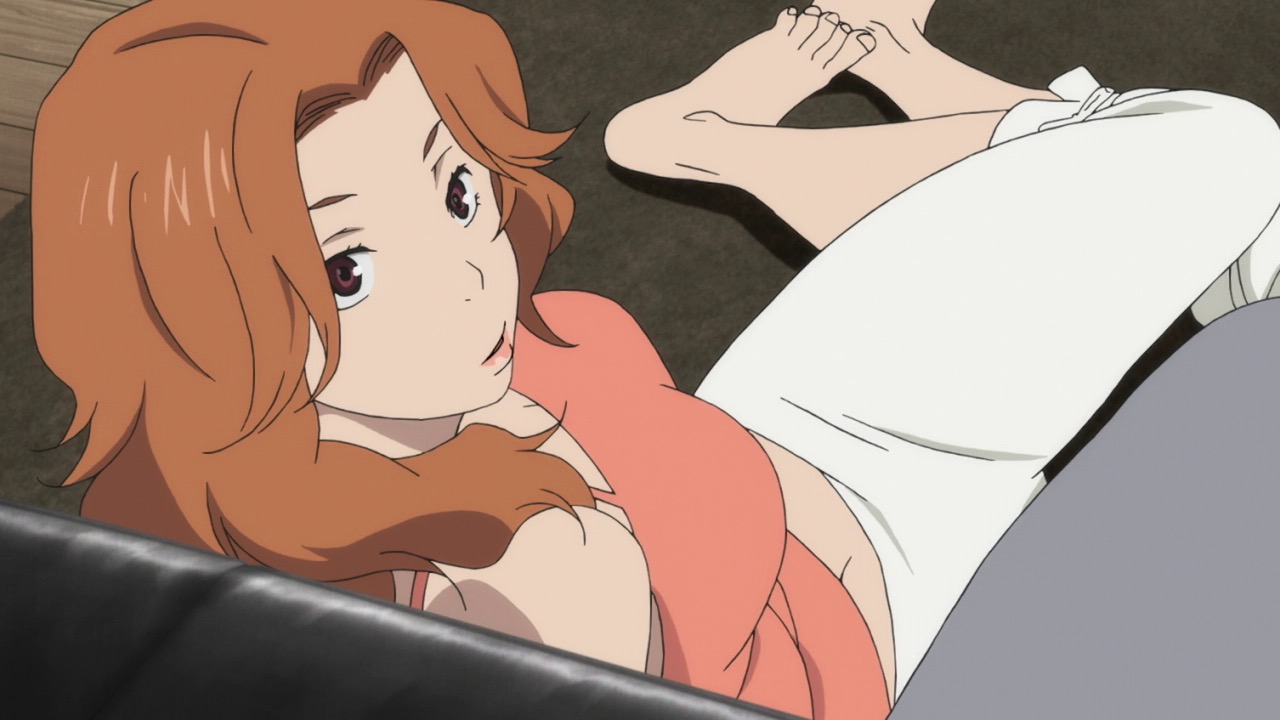 Remi Miyoshi/Nishioki Remi Miyoshi/Nishioki
This week is a dream I still haven’t woken up from. Let’s hope next week isn’t a living nightmare.
"I guess after 108 years of waiting, Cub fans can be forgiven for being a little slow in letting go of the absurd fantasy life has become and embracing reality again. [The Cubs won the 2016 World Series against Cleveland.] In its way I think today was actually the day I most acutely felt the pain of not being in Chicago for all this. For all the times (thousands, to be sure) I fantasized since childhood about how that final inning would go, I probably fantasized every bit as much about how the celebration would go. About the parade, and the crowds, and Grant Park, and the music and the tears. Unless you were in Chicago employers weren’t going to be keen on skipping out on work (with five million in attendance, I can’t think many offices were staffed apart from on the South Side), so I had to content myself with catching it all on WGN via DVR. And even that left me an emotional wreck."
 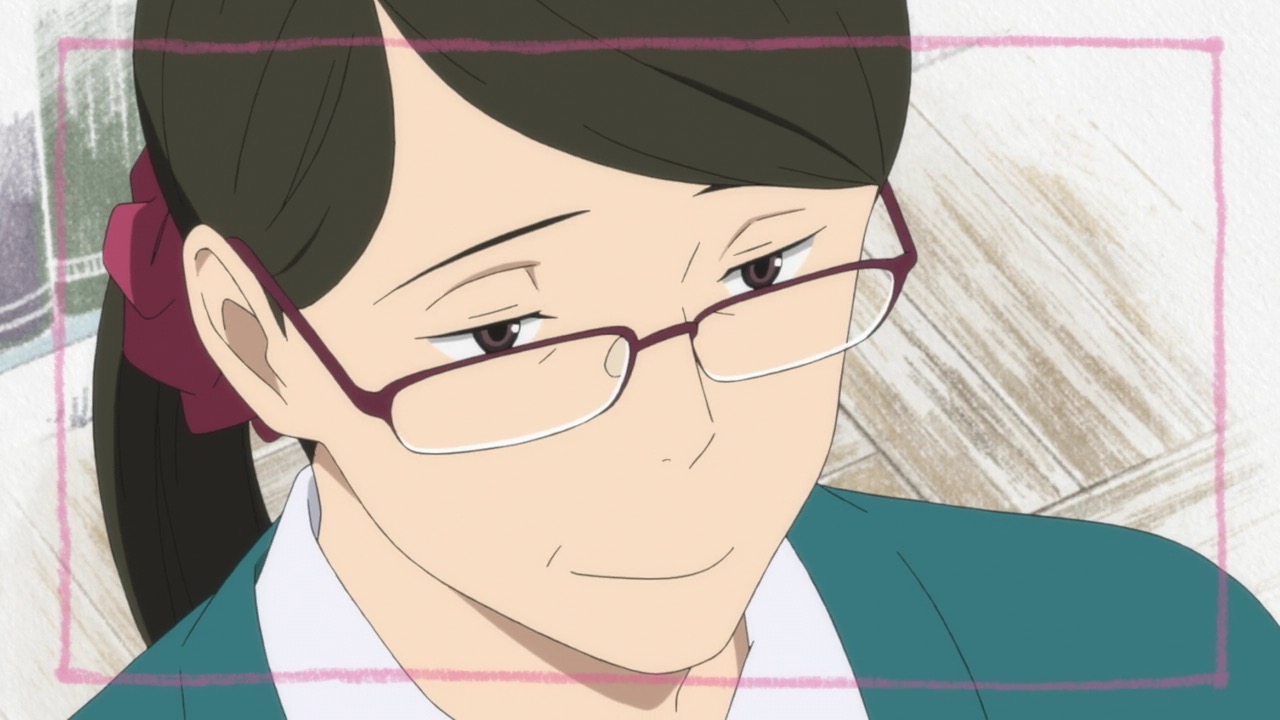 Kaoru Sasaki Kaoru Sasaki
As America seems to be readying to tear itself asunder and my business trip continues, anime just keeps rolling along like Old Man River. [Donald Trump lost the popular vote; but he won the Electoral College.]
"I’m still not quite sure how to process it, to be honest – on some level I feel guilty giving it my attention, but on the other hand there’s something to be said for a welcome distraction when events are as bleak and scary as they are. I find myself able to slip into the moment for 22 minutes all right (especially for something inherently healing like Natsume Yuujinchou) but the concentration level required for writing about anime is a much tougher ask. I’ll do my best."
 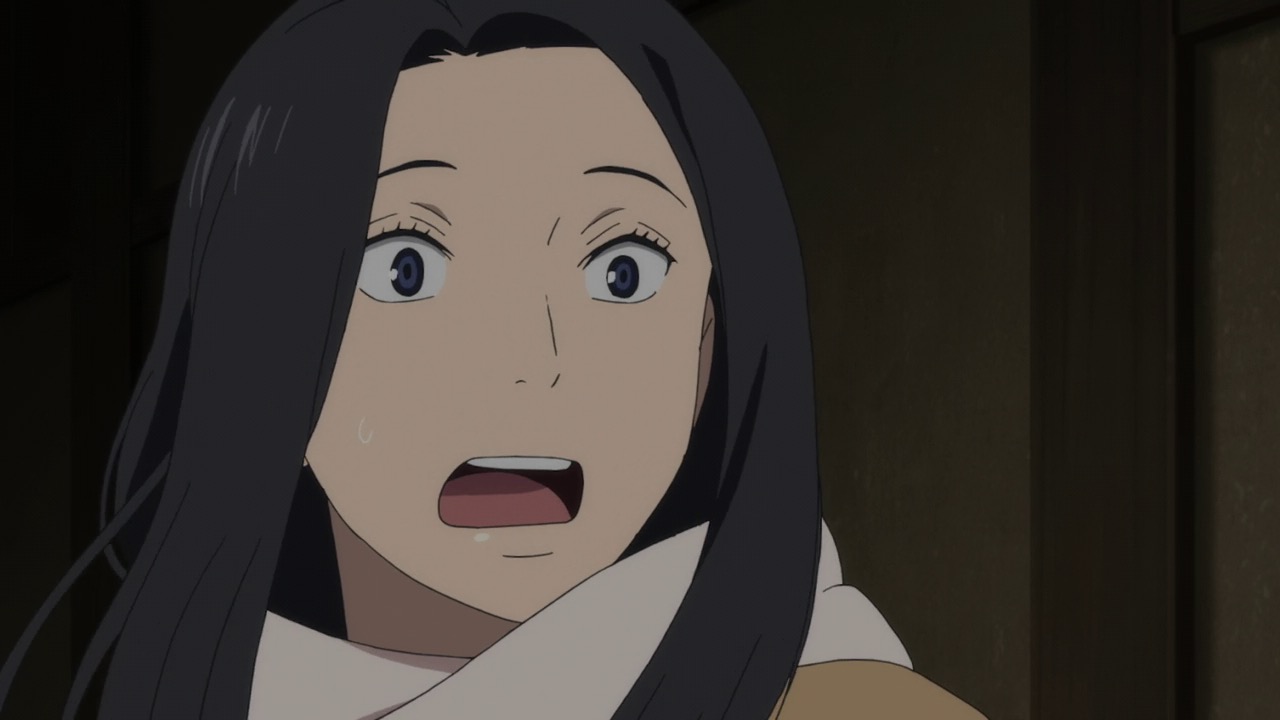
 Take Ooya (Mitsuya Majime's landlord and Kaguya Hayashi's grandmother) Take Ooya (Mitsuya Majime's landlord and Kaguya Hayashi's grandmother)
I believe The Great Passage is a series that asks a lot of questions about and of the audience.
"Ultimately, The Great Passage more than anything else seems to be about passion.
[...]
"'Passion', of course, can manifest itself in many ways, and Majime’s feelings for Kaguya are another expression of it. Nishioka seems to be trying to fill his emptiness with passionless romance, [...].
[...]
"The tragic thing for Nishioka is that just that when he’s become passionate about The Great Passage, he’s being forced to leave the project – and to salt the wound, this is as a result of his newfound conviction having saved it.
[...]
"There’s another expression of passion in this episode – the Genkai (Sea of Words), the first modern Japanese dictionary. It was compiled as a one-man crusade by the Meiji scholar Ootsuki Fumihiko, who devoted his life to its publication (and that of the follow-up Daigenkai, completed by adoring proteges and published a few years after Ootsuki’s death) – and if that’s not passion, I don’t know what is."
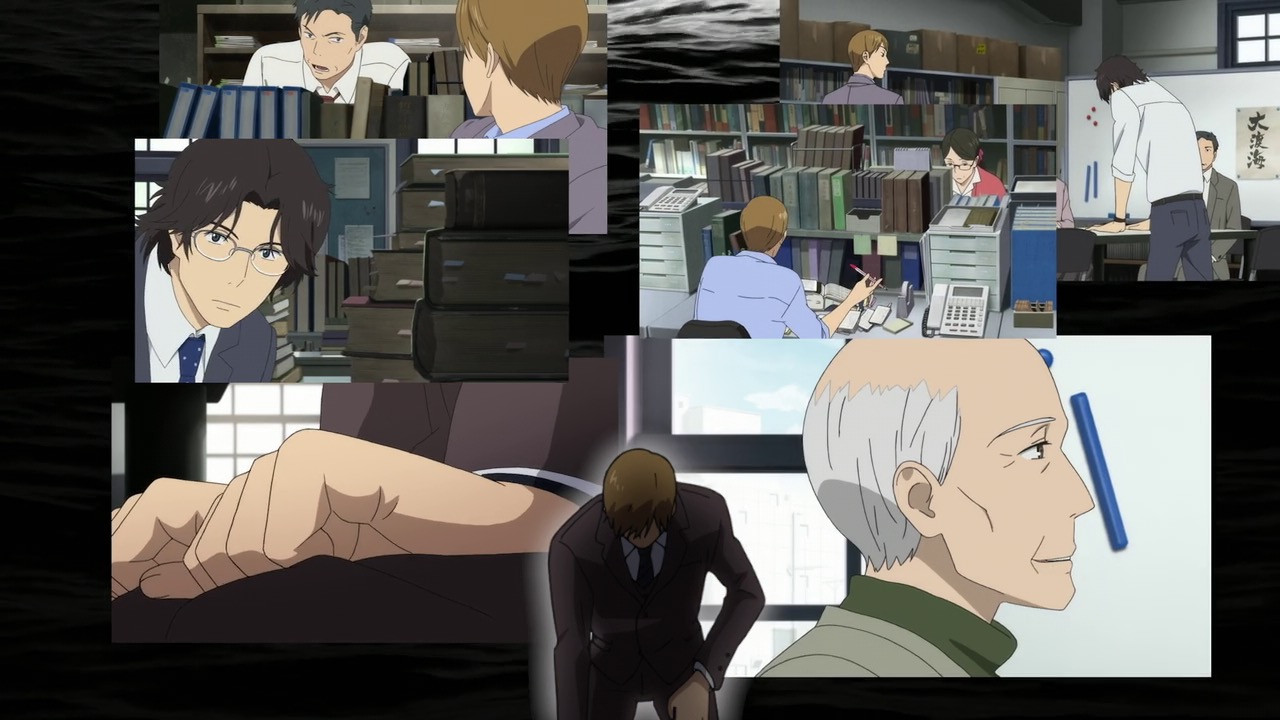 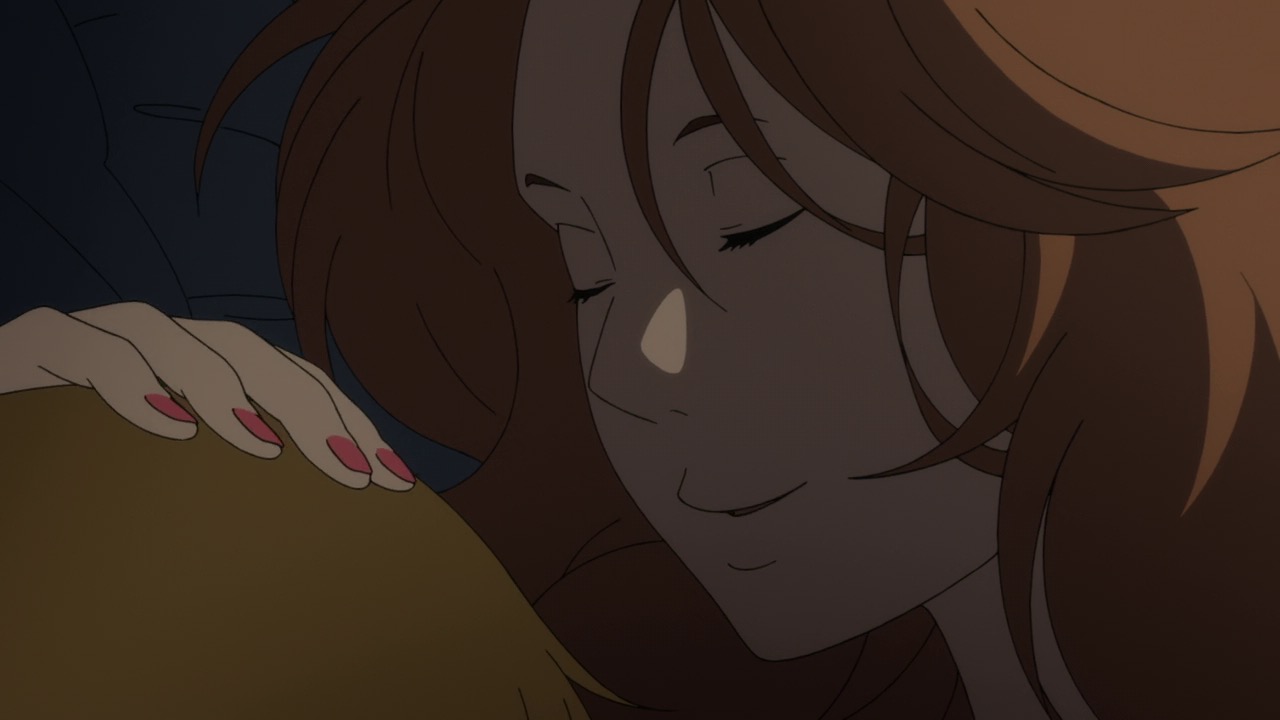
When I say this episode represented a return to form of sorts, take [it] in the context that even the form it was in was pretty damn good. It’s just that eps like this one are why I fell in love with Fune wo Amu.
"I think with Nishioka it comes down to a matter of perspective as the key [...]. Majime is interesting but he’s a true believer, a natural when it comes to the art of the dictionary. Nishioka is someone more of us can relate to, someone who’s struggling to find his place in life. Nishioka’s skills are practical and mundane. His romances aren’t epic love letters delivered to fairy tale princesses in the moonlight – they’re clandestine relationships with co-workers where affection is expressed by a wry insult and a quiet, exhausted cuddle after the lights go out. Which one of those is the more relevant to most of our lives?"
-
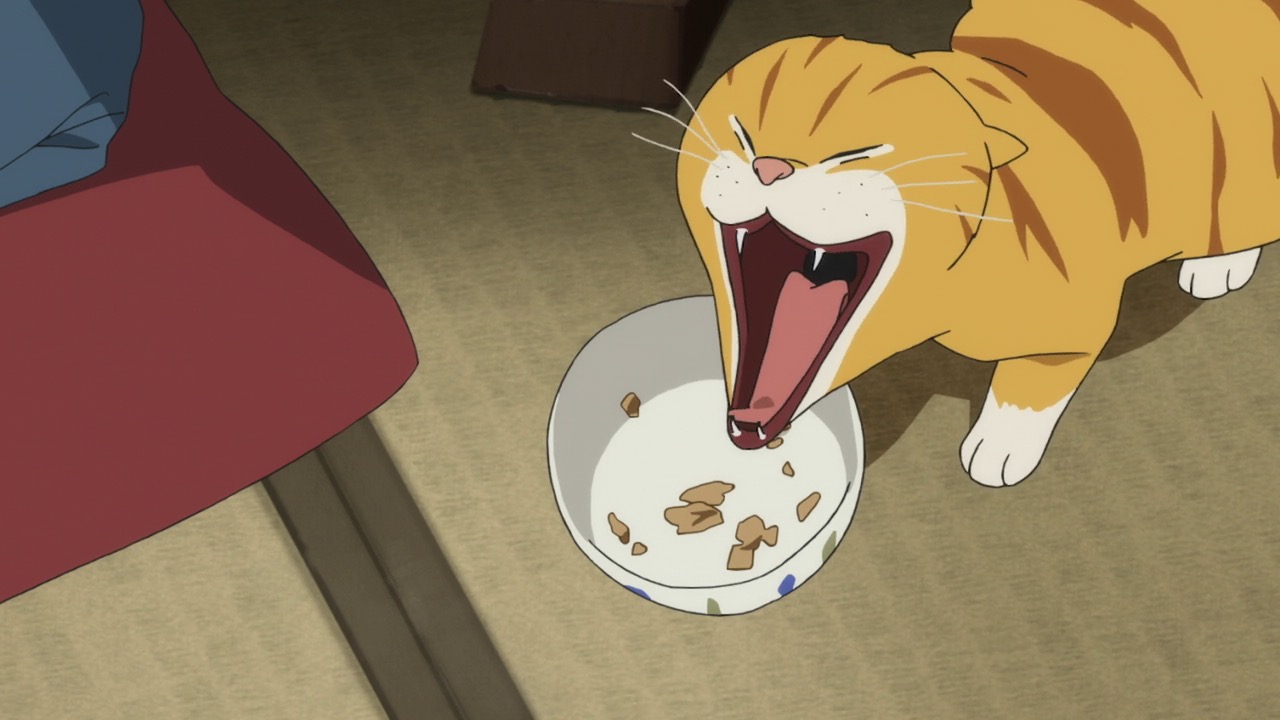 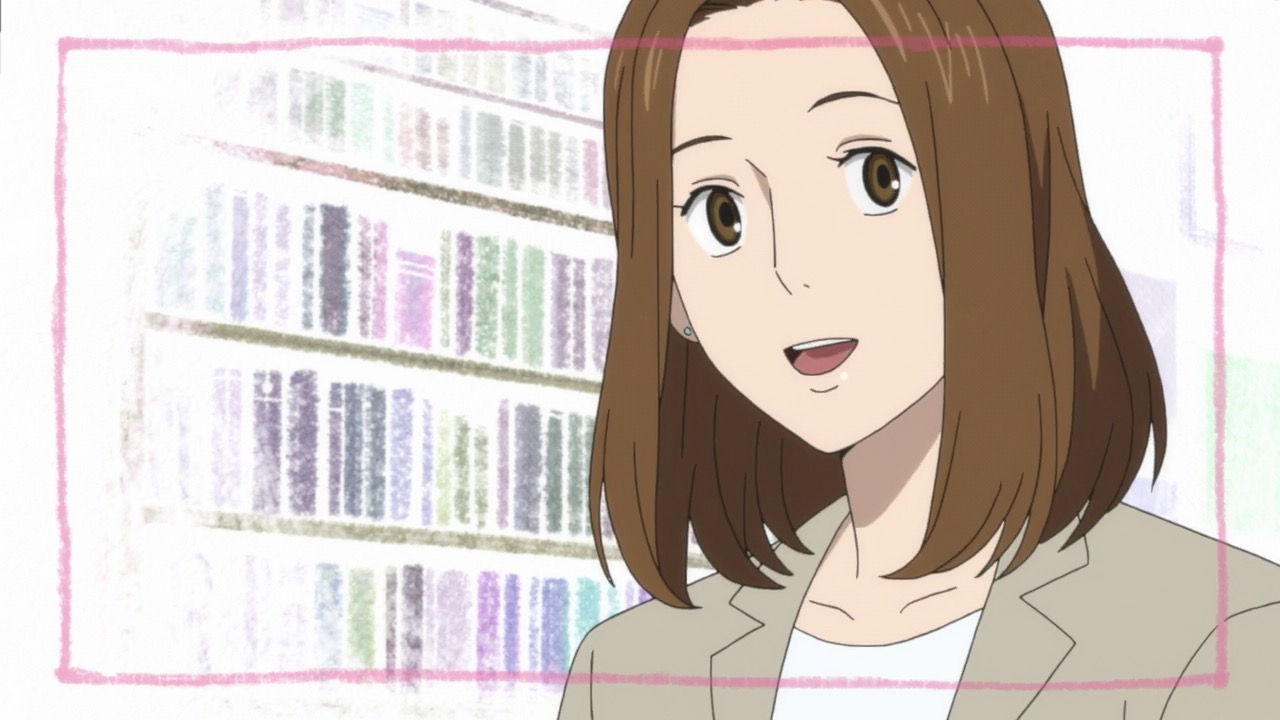
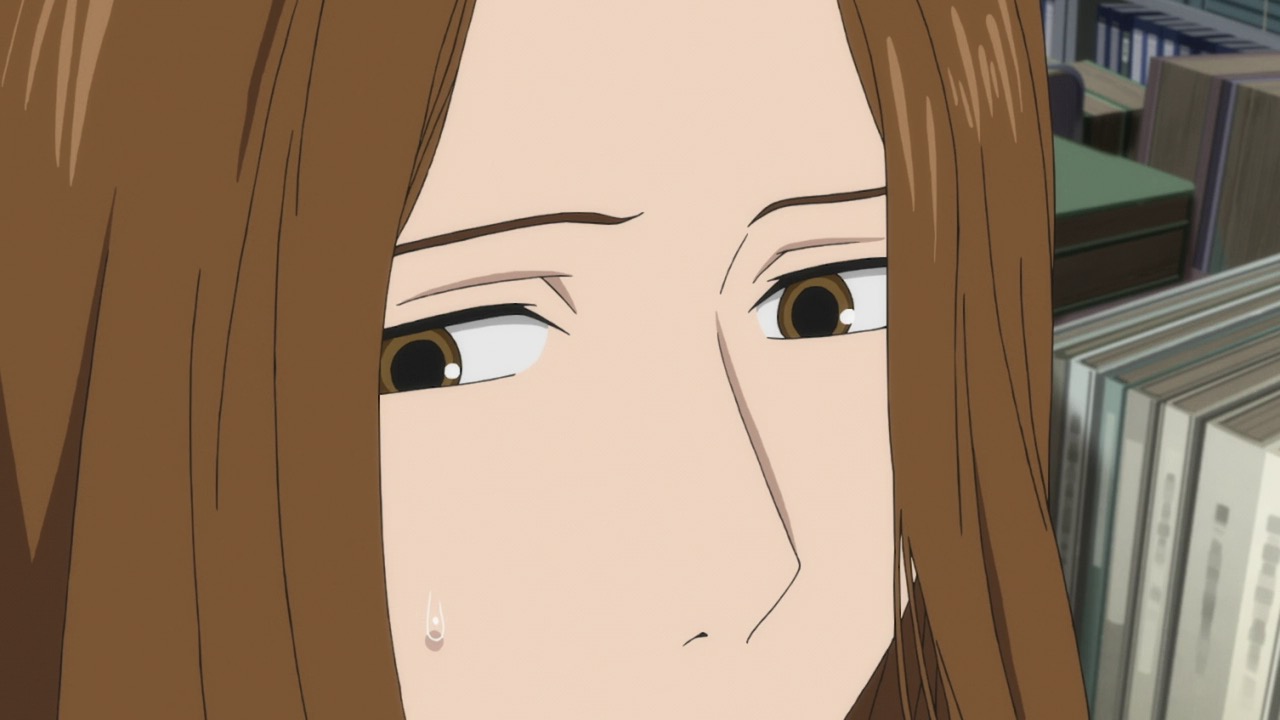 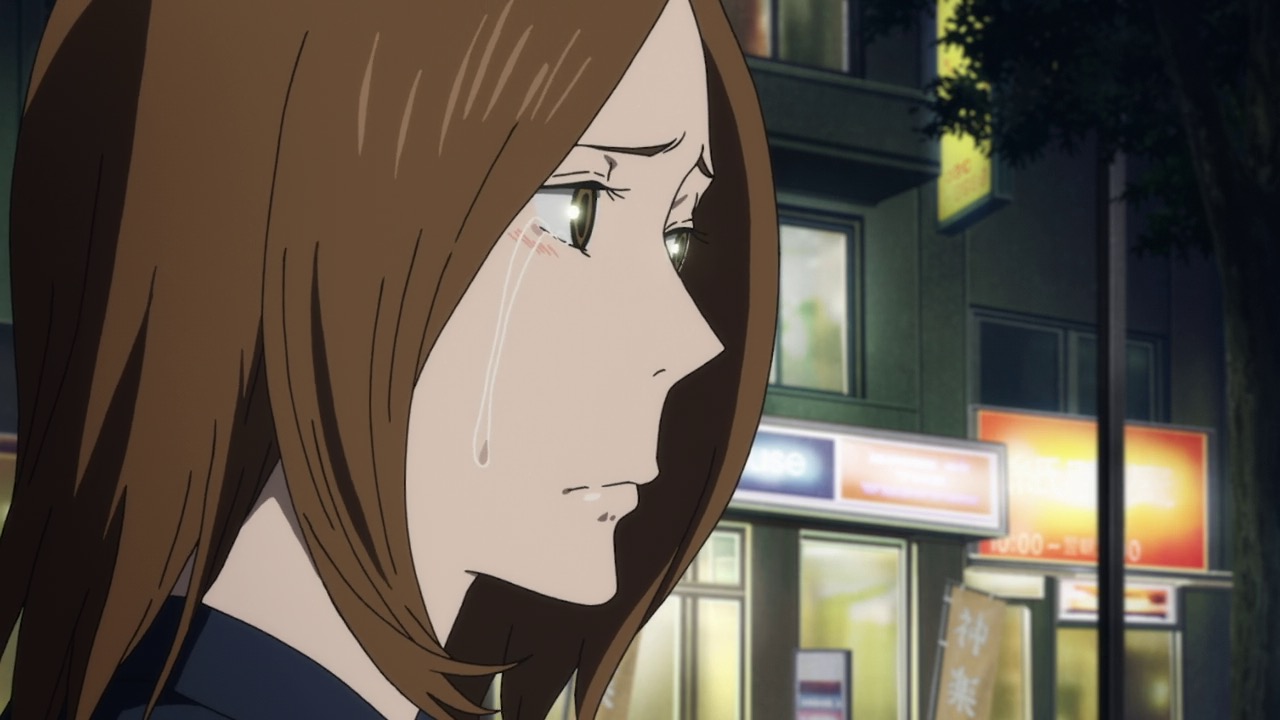
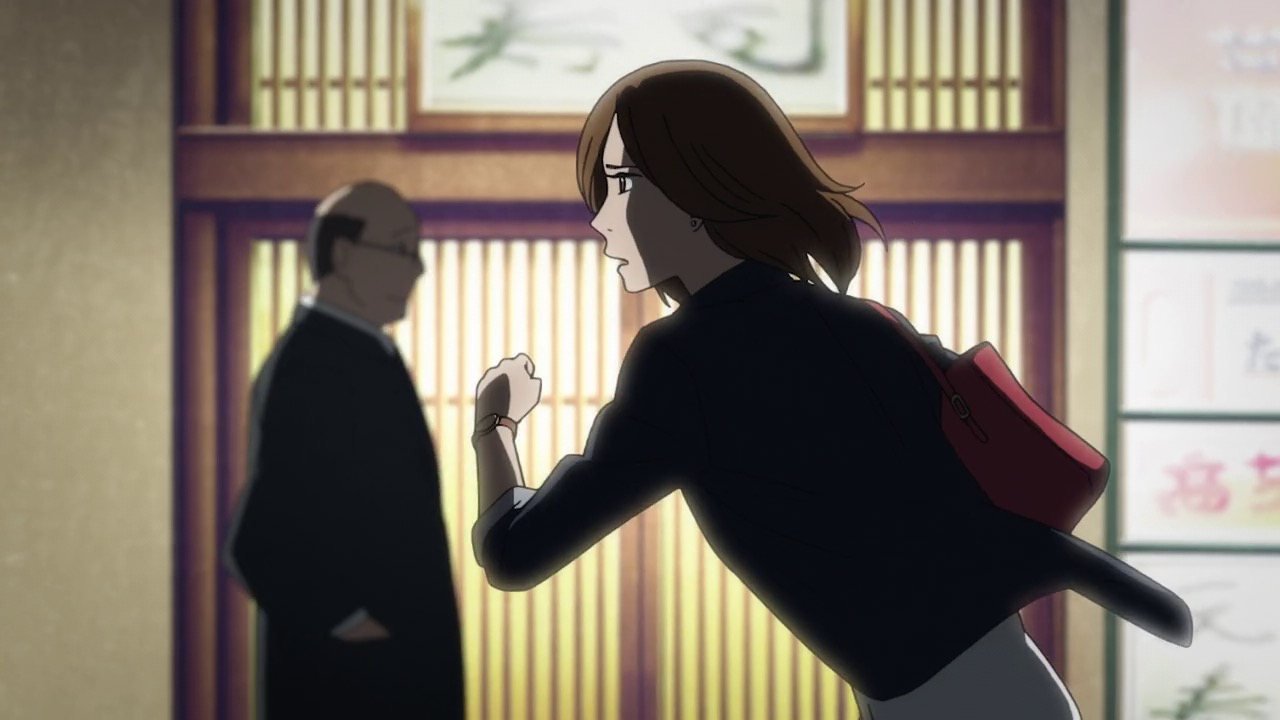
Time skips in anime are always a nervous subject, and with good reason.
"I can think of may shows that jumped the shark pretty hard as a result, but with The Great Passage I think it stands as pretty likely that things will be different. [...] So normal anime disclaimers probably don’t apply here, since Fune wo Amu is anything but a normal anime.
[...]
"Yet there’s a certain hopefulness to it too, a sense of the plucky optimism of this underdog undertaking. We see it through the eyes of Kishibe Midori (Hikasa Youko, 'Bungaku Shoujo' herself), the new employee the publisher has finally seen fit to throw at the department. She’s a refugee from one of the company’s fashion magazines, 'Northern Black', where she apparently clashed repeatedly with her co-workers and editor over her obsession with 'the importance of words'. If you think that sounds like a good fit, you’re definitely right."
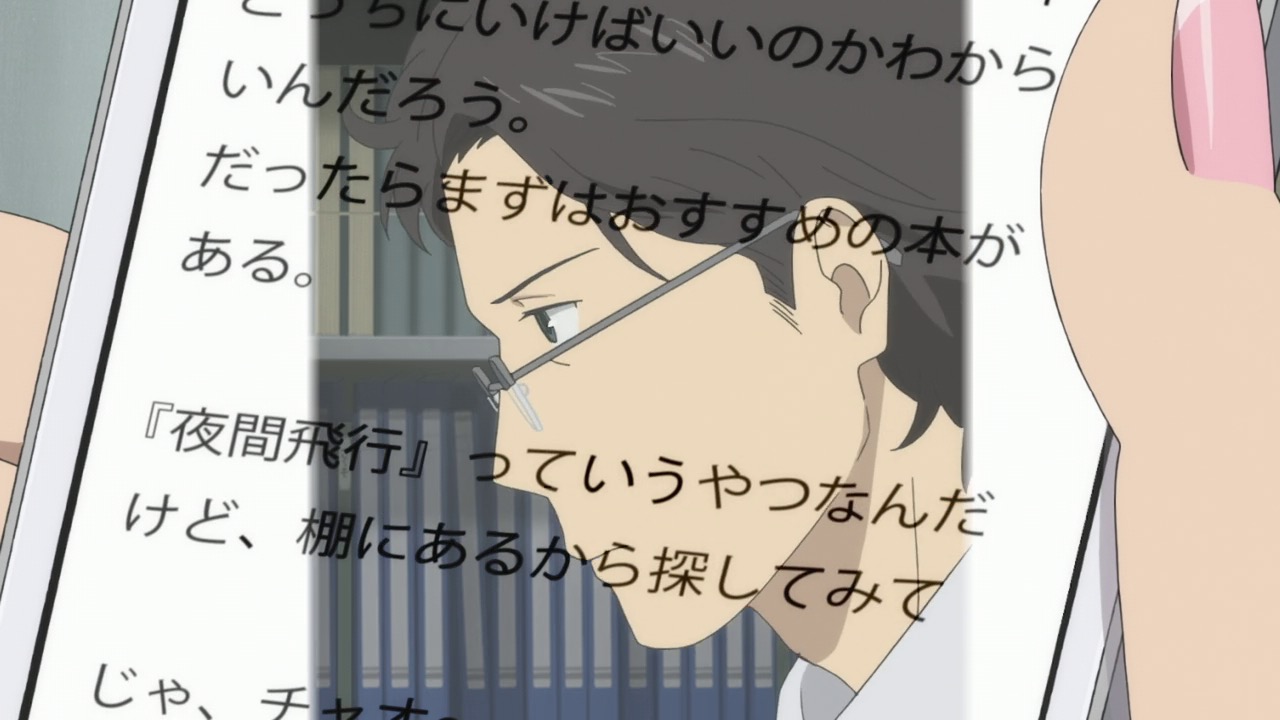
[T]his is a story about passion – their passion – and when you understand it as such, you realize that it’s quite universal after all. And that the story itself has a lot more in common with traditional anime than it appears to.
[...]
"There’s a sort of valedictory quality to Fune wo Amu. Not to be too dramatic about it, but it’s hard to look at the 2017 anime schedule and not be struck that much more by just what an odd series this is – that, and the idea that it could be the last of its kind, both for NoitaminA and anime generally. Probably not – but shows like it are becoming rarer and rarer, and the medium seems to re-emerge from these creative dark ages a little bit less vibrant and diverse each time. One of these times it’s probably never going to come back."
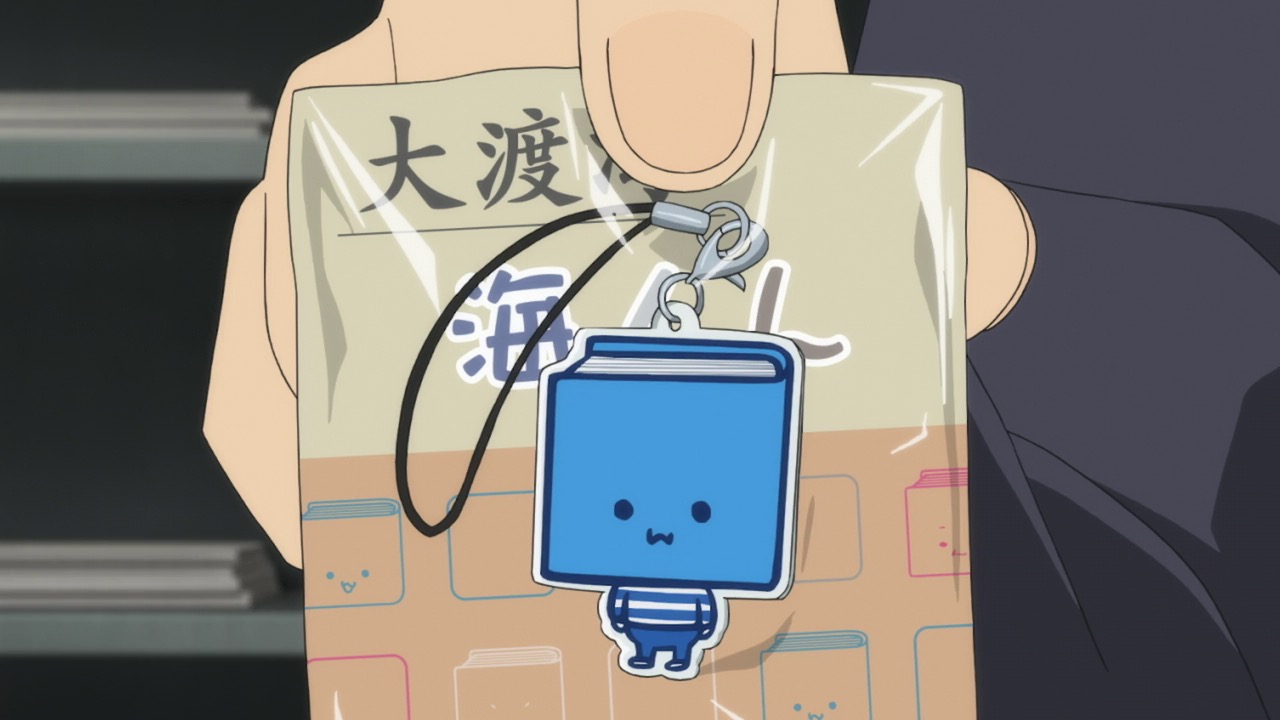
Who’d have thought two of the shows I’d be most vested in this season [2016, Fall]* would be about dictionary writing and figure skating**? God bless writers (and producers) who take chances.
"The thing is, if Fune wo Amu is indeed the last hurrah of the old, 'art for art’s sake' NoitaminA, at least they picked a perversely uncommercial lead balloon to go out on. If you’d told me you could make a genuinely exciting series about compiling a dictionary, I’d have said you were crazy. I’m vastly more geeky and esoteric than 90% of the population, I’d bet, and I find dictionaries pretty boring. For most people (even those that love books) dictionaries are things we take for granted almost as much as air. Yeah we need them sometimes (even if they’re now mostly online) but why would we ever want to think about them?"
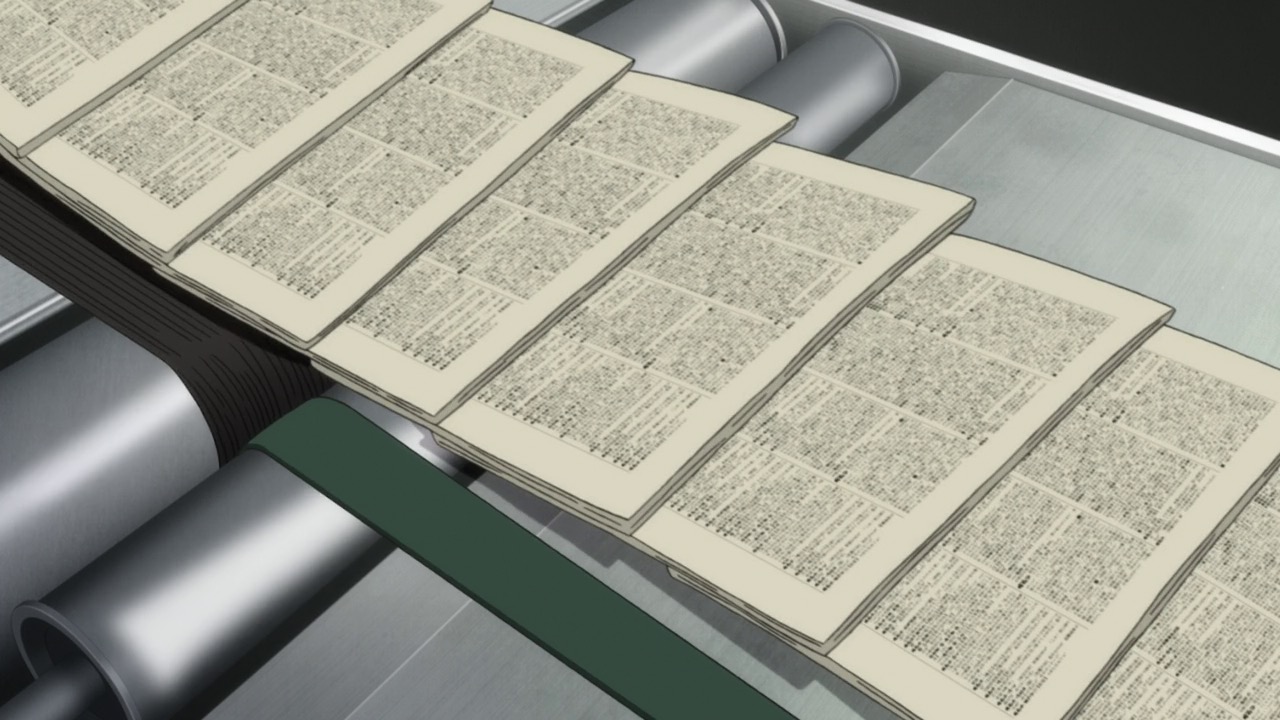
I suppose it’s only natural that the finale of The Great Passage has left me in a tremendously reflective mood, because it’s one of the more reflective series you’ll ever see.
"That’s fitting, too, because one of the many themes of Fune wo Amu is that truly important things are timeless – they outlive us, but through the work of our lives we transcend our ephemeral existence and live on in those who follow us.

Symbolism
Need to work on this. There are shots in the last episode that I think need explicating.
ferris wheel -- in OP -- on Hajime's shelf -- shots of Hitsuya Majime & Take Ooya looking across a body of water at a ferris wheel in the distance
different shots of birds in flight
leaf floating down a stream
shot of a blooming flower
ep.#11 -- at the end there is an indoor sign with words that seem related to the plot of the series.
There is a notice on a public board for "The Night is Young, Walk On Girl"
Two questions posed to Red Panda Reels concerning the OP
- Q. At the fifty-four second mark (https://youtu.be/jVAjAlW97xw?t=53) Majime hits a sentence and is knocked back. What does that sentence say?
A. [This] first [question] took some detective work - the kanji is 志独歩, which is an unusual combination. 志 means “intention” while 独歩 means to walk alone. I’m not entirely sure if it’s as simple as “the intention of walking alone” because as I said, it’s an unusual combination of kanji. When I googled it in Japanese, I found that it’s the title of a magazine article the (animation) director of The Great Passage wrote (his name is Kuroyanagi Toshimasa). I can’t find the article itself online, so I can’t tell you more than that. Somebody’s review of said article though mentions it being about the director’s driving force when making anime and wanting to make himself understood - that does sound like something Majime m “ran into” in his life!
- Q. At the fifty-seven second mark ( https://youtu.be/jVAjAlW97xw?t=57 ) Majime seizes a kanji and then hands it off to Kaguya. What is the meaning of that kanji/word?
A. [This] second one is fairly simple. The kanji he clutches is 灯 which means “light”. The radicals are “fire on a street”, so it also means lamp. It’s usually used in Japanese quite literally (as “a source of light”) but perhaps in the OP it could signify reaching a conclusion - seeing the light (at the end of the tunnel of getting himself understood).
Episode List:
-
"Vastness"
The OP had me in its thrall within the 1st 90 seconds that I heard it! And the ED ain't ½ bad, either!
-
"Encounter"
The OST is also enchanting!
-
"Love"
-
"Steady Progress"
Better lyrics given within episode itself.
-
"Waver"
Mitsuya (Majimi) submits a love letter to Kaguya.
-
-
-
-
-
-
【AMV】Fune wo Amu - Don't give up | IsenLinden
↔ | Masterpiece |























